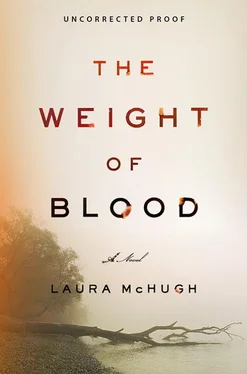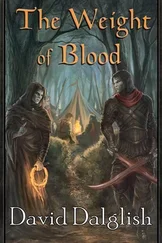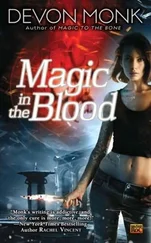“Please come in,” he said. He was tall and angular, wearing a white dress shirt with rolled-up sleeves and a tie with the knot loosened. His graying hair was combed to the side with pomade, and his eyes were pale and piercing. He stared at me expectantly.
“Hi,” I said. “I’m Lila Petrovich.”
“I know who you are,” he said, reaching out to shake my hand. “I expect the whole town knows by now. I’m Ray Walker. Let’s have a seat, shall we?”
I followed him around the billiard table that dominated the room. He sat behind a polished mahogany desk, and I sat across from him.
“What brings you here?” he asked.
While I tried to decide what to say, he poured two cups of coffee and slid one across the desk to me. “If I tell you something, do you have to keep it to yourself?” I asked. If he knew Carl, he probably knew Crete, and I didn’t want the conversation getting back to my employer.
“Well,” he said, stirring sugar into his coffee, “I do abide by the attorney-client privilege, if that’s what you’re asking.”
That didn’t ease my fears, but I didn’t have much of a choice. “I have some questions about a contract, and I wondered if you could look at it for me.”
He laughed, and it turned into a cough that went on for a minute until he cleared his throat. “Would this be a contract with Crete Dane?”
I nodded.
“Then I imagine your contract is pretty well binding.”
The room suddenly felt too small. “Did you write it?”
“Lord, no.” He chuckled. “He retains what you might call a more prestigious firm in Springfield. Lucky for you, I suppose. No conflict of interest.”
“So you could help me.”
“Possibly. I would need a retainer, and I would need to see a copy of the contract.”
I didn’t have either of those things. “How much is the retainer?”
He wrote a number on a notepad and showed it to me. I fidgeted in my seat. “Do you have a payment plan?”
He stared at me as though trying to gauge something with no standard of measurement. He took a swallow from his mug and sighed. “Do you have any money at all?”
“Yeah,” I said. “I mean, not very much. That’s partly why I’m here. If you could just give me some advice—”
He held out a hand to stop me. “I am a country lawyer, madam. I have accepted chickens in settlement of a debt, and I am certain we can work something out. But I must insist on a small percentage of cash up front. Bonnie can explain the terms on your way out, and you can come back and see me when you have the means to move forward.”
“Thank you,” I said, standing to leave.
“Aren’t you worried he’ll find out you’ve been here?”
His words froze me. “Should I be?”
“I won’t say anything, of course,” he said. “Neither will Bonnie; her job depends on it. But other people may have seen you come in. And people talk. Now, I’m on his bad side already, but if I were you, I’d think long and hard about which side of Crete Dane you want to be on.”
“It’s too late, I think,” I said.
Mr. Walker swirled his coffee cup. “I figured,” he said.
I knew exactly what I wanted from the grocery store. My grandma’s dumplings were the ultimate comfort food, cheap and easy, requiring few ingredients. Carl pushed the cart and helped me find what I needed. He greeted everyone he saw with a friendly hello, not bothered by the fact that most of them openly stared at us. As we neared the cash register, an Amazonian blonde grabbed his wrist and screeched like an annoying bird. They started talking, and she ignored me completely after an initial dark glare in my direction. I drifted toward the magazine rack and caught sight of a man in an apron shaking a little boy by the collar. I moved closer and saw that the man was holding a candy bar. The boy looked up, terrified, and I smiled at him. I’d been caught stealing candy years before at a Kmart in Cedar Falls, but the manager had mercy and let me go.
“Please,” I said, stepping forward and digging in my pocket. “I’ll pay for it.” I offered a handful of change, and the grocer stared up at me, slack-jawed, slowly rising to full height. “Here,” I said, smiling to encourage him. He glanced down at my palm long enough to pluck the proper coins. He loosened his grip on the boy, who snatched the candy bar and ran.
“How’s it going, Junior?” Carl asked, coming up beside me with the cart. “Looks like you just met Lila. She’s new in town.”
“So I see.” Junior snapped out of his trance and squeezed behind the register to ring me up.
“Sorry about that woman back there,” Carl said to me. “She’s an old friend from school, and she has a way of cornering you.”
“It’s okay,” I said. Had he thought I’d be jealous? Was I jealous? Junior bagged up my groceries and took my money. I didn’t have much left over.
“Do you have any pans I could borrow?” I asked Carl on the way back to the truck. He’d insisted on carrying my two small bags.
“Sure I do,” he said. “You can come on over and use whatever you need.”
“I don’t want to intrude,” I said. “There’s a stove burner at my place, I just need something to cook in.”
“Come on. It’d be a favor to me,” he said. “I’d love to taste whatever it is you’re making. I haven’t had home cooking in a good long while.”
It didn’t take much for him to convince me. I was in no hurry to get back to the garage, and I wanted to see where he lived. I noted the decline of roads as civilization receded behind us. The two-lane highway out of town had been cut through stone, cliffs rising on either side as we passed through naked layers of earth. Once we hit blacktop, the road—or its makers—had been humbled. Instead of blasting through the landscape to make its own way, it followed the rolling ridge, traveling along its spine, the world falling away from its flanks. Then we turned onto dirt and drove and drove through woods edged with barbed wire. The trees gave way to pasture on the left, and we passed a small frame house with a close-cropped yard and irises blooming beside the steps. A tiny old lady in overalls stood out front with a watering can, watching us pass. Her dog barked but didn’t move from her side. Carl waved, and the woman nodded. “That’s Birdie,” he said. “The midwife.”
A few minutes later, we pulled up to his house, plain except for the decorative trim along the porch. A forgotten garden filled the side yard, a few random blooms showing through the weeds. “This is it,” he said, grabbing the grocery bags. “Come on in.”
I’d expected a spare bachelor’s kitchen but instead found it well stocked, the pots and pans and utensils worn to a dark patina. When Carl excused himself to tidy up the other rooms—he hadn’t been expecting company, he said—I sneaked glances at the framed cross-stitch sampler on the wall, the patterned dishes in the china cabinet. An unmistakable photo of Carl and Crete as boys, the older boy’s arm locked protectively around his much smaller brother’s shoulder. Beside the kitchen door, pen marks broke their height into increments, the highest one well above my head. They had grown up here.
“What can I help you with?” Carl asked when he returned.
I didn’t want any help. Dumplings were the one thing I remembered how to make from Grandma’s recipes, and I’d made them in every foster home that had allowed me to cook. I wanted to mix and measure and sink my hands into the dough and let the ritual kneading and shaping return me to my mom’s kitchen. “You can keep me company,” I said, “as long as you don’t get in the way.”
He leaned against the counter and chatted while I worked. When the dumplings were ready, we ate them at the dining room table, Carl complimenting my cooking repeatedly and finishing off the portion I’d planned to save for lunch the next day. After dinner, we moved to the porch swing with sweating glasses of iced tea.
Читать дальше












